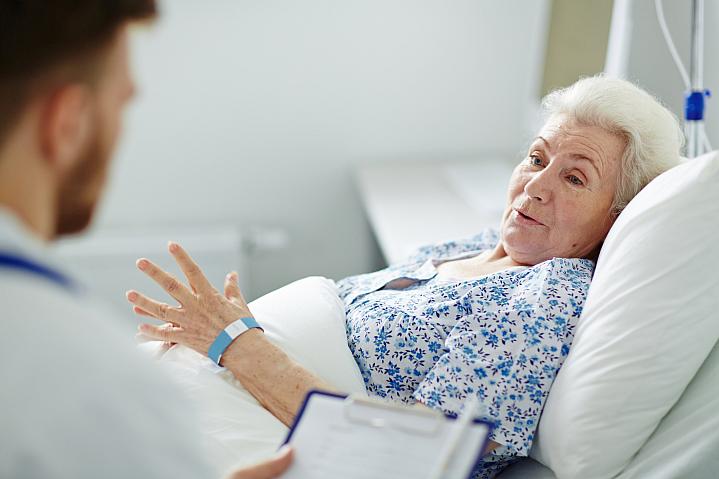Health Capsule
Surgery May Help More People After Stroke
 In ischemic stroke, blood vessels that supply the brain become blocked. Dying brain tissue can be saved if blood flow is quickly restored. shironosov/iStock/Thinkstock
In ischemic stroke, blood vessels that supply the brain become blocked. Dying brain tissue can be saved if blood flow is quickly restored. shironosov/iStock/ThinkstockBrain imaging advances are helping doctors better treat patients who have a stroke.
The most common types of strokes are caused by a clot that blocks a blood vessel in the brain. These are called ischemic strokes.
Strokes are a medical emergency. When blood can’t deliver nutrients and oxygen, the brain tissue in the area begins to die. Doctors must restore blood flow to the brain as fast as possible to lessen the damage.
Certain drugs, surgery, and other methods can restore blood flow. Surgery to remove a blockage, called a thrombectomy, was approved for up to six hours after a stroke. A research team tested whether it could help for up to 16 hours after a stroke.
Using a brain imaging technology called perfusion imaging, they identified 182 patients who might benefit from clot-removing surgery between 6 and 16 hours after a stroke. About half the patients were randomly chosen to have clot-removing surgery. The other half had the standard medical treatment.
Patients who had the surgery were less likely to die. They were also likely to be more independent after their recovery. NIH ended the study early because of the success of the surgery.
“These striking results will have an immediate impact and save people from life-long disability or death,” says Dr. Walter Koroshetz, director of NIH’s National Institute of Neurological Disorders and Stroke. After the study’s results were released, the American Heart Association and American Stroke Association issued new stroke treatment guidelines.
NIH Office of Communications and Public Liaison
Building 31, Room 5B52
Bethesda, MD 20892-2094
nihnewsinhealth@od.nih.gov
Tel: 301-451-8224
Editor: Harrison Wein, Ph.D.
Managing Editor: Tianna Hicklin, Ph.D.
Illustrator: Alan Defibaugh
Attention Editors: Reprint our articles and illustrations in your own publication. Our material is not copyrighted. Please acknowledge NIH News in Health as the source and send us a copy.
For more consumer health news and information, visit health.nih.gov.
For wellness toolkits, visit www.nih.gov/wellnesstoolkits.



